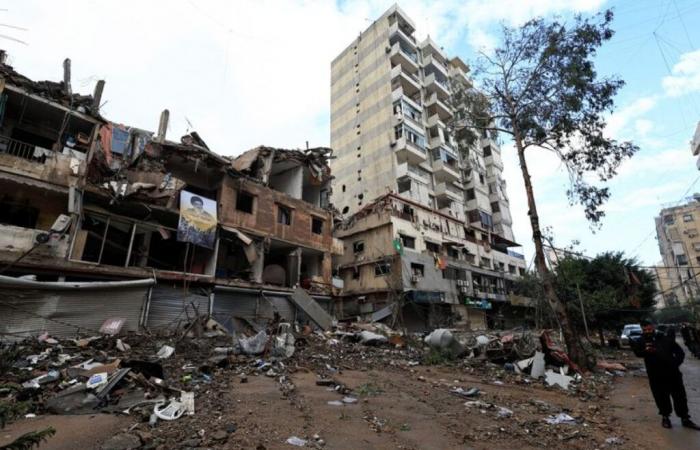Israel and Hezbollah agree to a ceasefire brokered by the United States and France
by Maya Gebeily and Aziz Taher
A ceasefire took effect Wednesday between Israel and Lebanon’s Hezbollah after U.S. President Joe Biden and French President Emmanuel Macron announced a deal to end fighting in Lebanon on Tuesday, a rare victory for diplomacy in a region traumatized by two devastating wars for more than a year.
Shots were heard in Beirut, the Lebanese capital, after the ceasefire came into force. This could be celebratory gunfire, but gunshots have been used in the past to warn residents who have not received evacuation orders issued by the Israeli army.
Many cars were heading towards southern Lebanon after the ceasefire took effect, according to Reuters journalists.
The Lebanese army, responsible for ensuring compliance with the ceasefire, said in a statement on Wednesday that it was preparing to deploy to the south of the country.
Joe Biden spoke on Tuesday at the White House immediately after the almost unanimous approval of this agreement by the Israeli security cabinet, saying he had spoken with Israeli Prime Minister Benjamin Netanyahu and the Prime Minister Lebanese Najib Mikati.
This ceasefire, intended to be “permanent” in the words of Joe Biden, came into force at 4:00 a.m. (02:00 GMT) on the night of Tuesday to Wednesday. “What remains of Hezbollah and other terrorist organizations will not be allowed to threaten Israel’s security again,” he said.
Israel will gradually withdraw its troops from southern Lebanon within sixty days during which regular Lebanese forces will deploy in this Hezbollah stronghold, to ensure that the pro-Iranian Shiite group does not re-establish there, explained the American president.
The agreement, assured Joe Biden and his French counterpart Emmanuel Macron in a joint statement, “will create the conditions necessary for the lasting restoration of calm and will allow the safe return to their homes of residents on both sides of the Blue Line”, the border between the two countries drawn by the United Nations.
Hezbollah has not officially commented on the ceasefire, but a political representative of the Lebanese Shiite movement, Hassan Fadlallah, told Lebanese channel Al-Jadeed TV that the group would emerge stronger from the war.
“Thousands (of people) will join the resistance. Disarming the resistance was an Israeli proposal that did not come to fruition,” said Hassan Fadlallah, who is also a member of the Lebanese Parliament.
Iranian Foreign Ministry spokesman Esmaeil Baghaei said Iran welcomed the ceasefire.
In a video message broadcast by the Elysée, Emmanuel Macron welcomed Tuesday evening “the culmination of efforts undertaken over many months” by Paris and Washington with the Israeli and Lebanese authorities.
“We could say that this agreement is the fruit of hard work that has been carried out over many months, and that it is a success for French diplomacy and that we can be proud of it” , declared Jean-Noël Barrot, French Minister of Foreign Affairs on Wednesday during an interview with franceinfo, specifying that the 700 French soldiers of the French contingent of UNIFIL present in Lebanon would play “an important role”.
Najib Mikati issued a statement welcoming the agreement. Lebanese Foreign Minister Abdallah Bou Habib said the Lebanese army would be ready to deploy at least 5,000 troops in the south of the country after the Israeli withdrawal.
Benjamin Netanyahu said he was ready to implement a ceasefire, warning however that Israel would respond forcefully to any violation.
The agreement will allow Israel to concentrate on “the Iranian threat”, to rest its army and to increase the isolation of Hamas, justified the head of the Israeli government, some of whose nationalist ministers are opposed to the agreement.
After almost a year of exchanges of rockets and missiles on both sides of the Israeli-Lebanese border, Israel launched a vast offensive against Hezbollah last September, killing its leader Hassan Nasrallah.
Since the start of the war in Gaza on October 7, 2023, and rocket fire from Hezbollah in support of Palestinian Hamas, at least 3,823 people have been killed in Israeli attacks in Lebanon, according to the latest report provided Tuesday by the Lebanese ministry. of Health. Around a hundred Israeli civilians and soldiers were killed by Hezbollah attacks, according to Israeli authorities.
The French foreign minister also said Wednesday that he hoped the agreement between Israel and Hezbollah in Lebanon would pave the way for a similar ceasefire in the Gaza Strip.
“I hope so because as in Lebanon, if I may say so, the violence and force in the region have caused too many victims (…) Force must leave room for dialogue and negotiation. It must now be done in Lebanon. It must be the case as soon as possible in the Gaza Strip,” he said.
(Jeff Mason, Maya Gebeily, Steven Scheer and Simon Lewis, with Gabriel Stargardter, Emilie Madi, Laila Bassam, Emma Farge, John Irish, Emily Rose, Adam Makary, Humeyra Pamuk, Cecile Mantovani and Enas Alashray; française version Camille Raynaud and Diana Mandiá, edited by Zhifan Liu)






